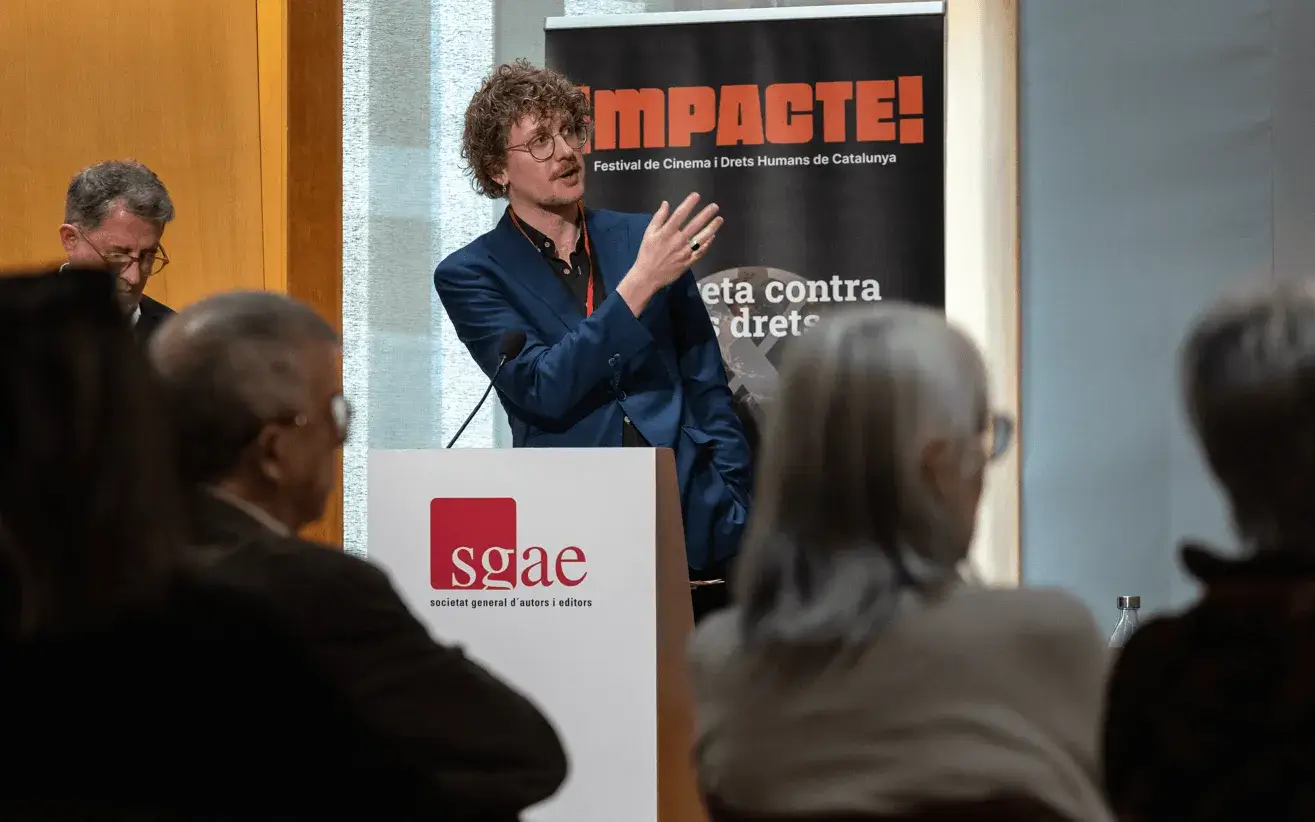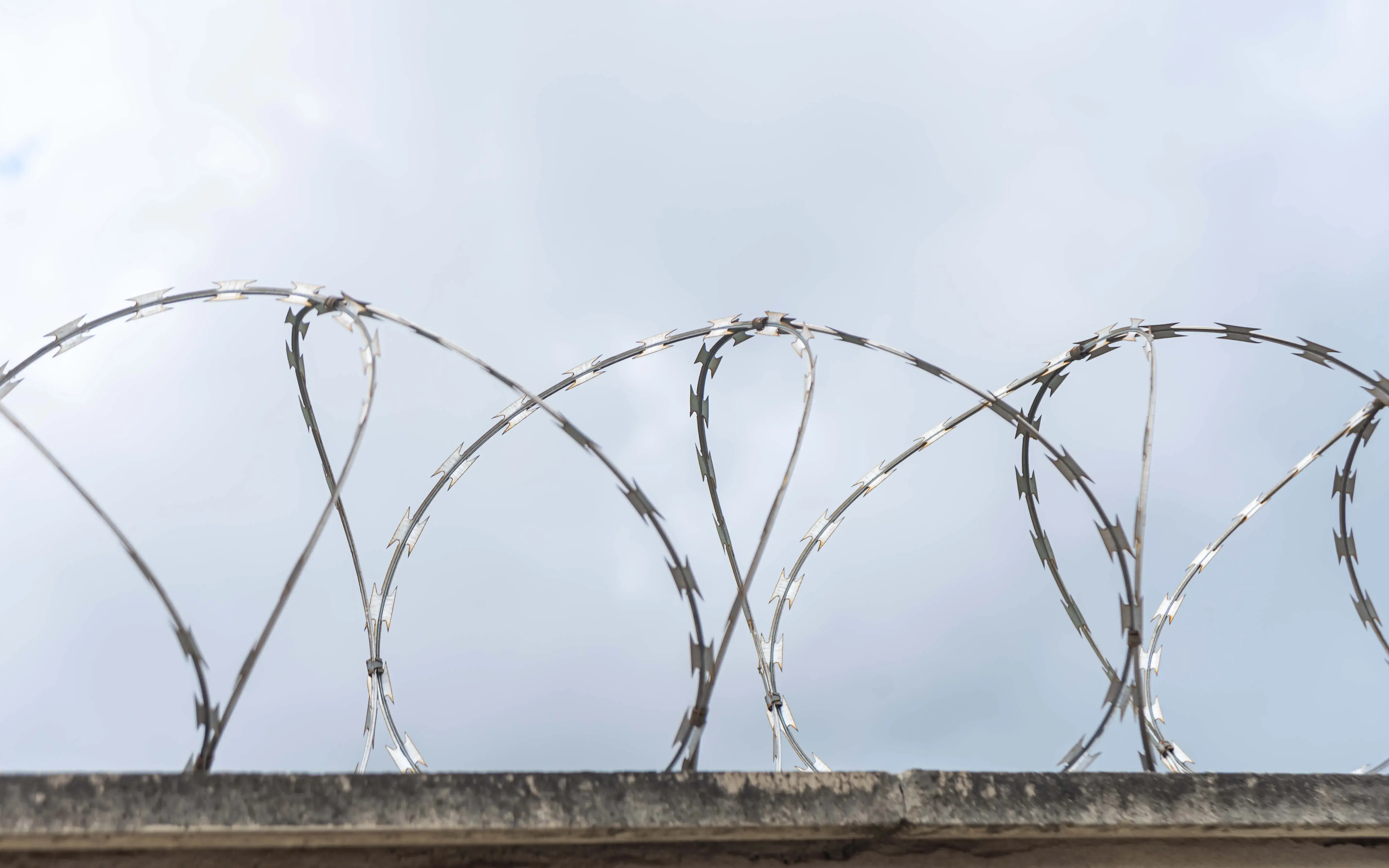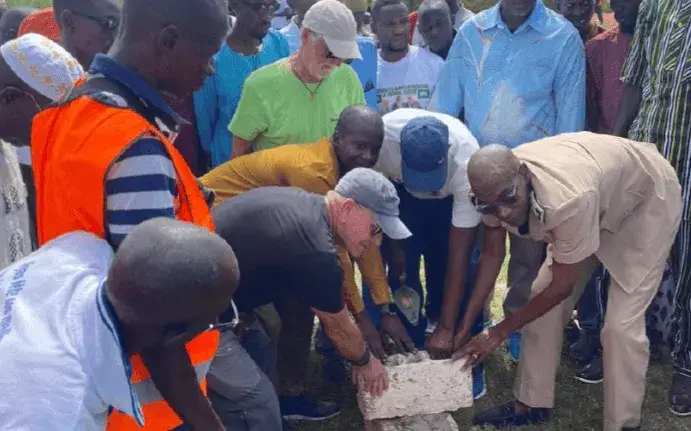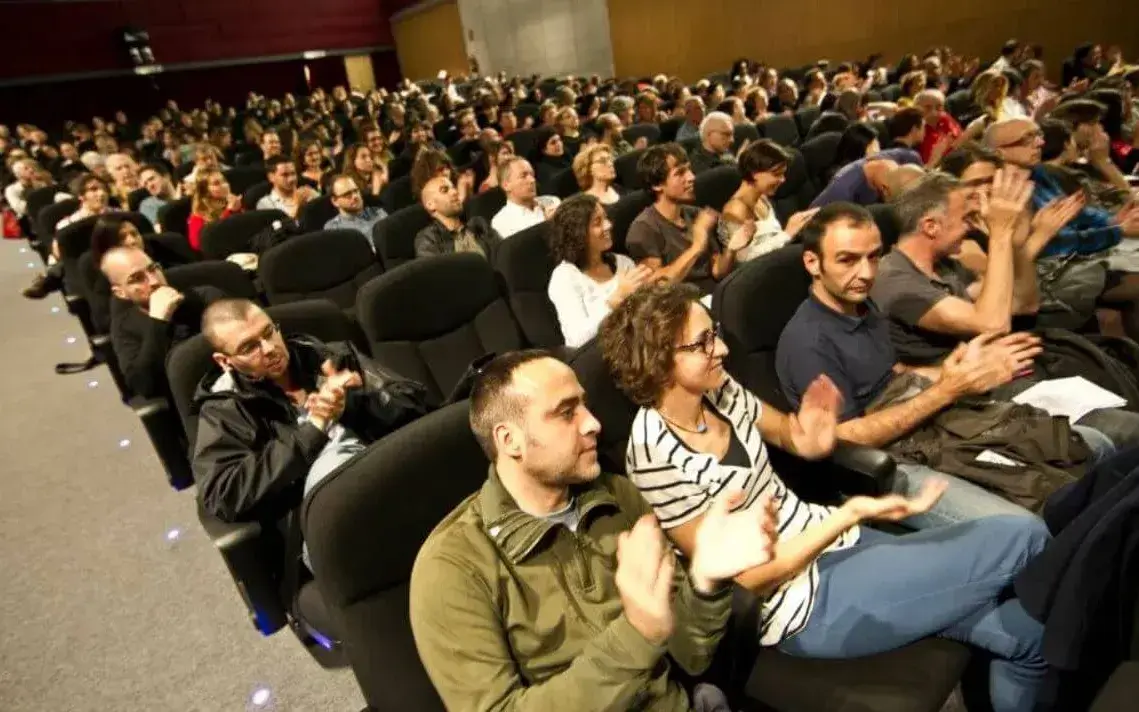Jordi Wijnalda: "In the world we live in, more and more filmmakers are in danger because of their activity"
We speak with the coordinator of the International Coalition for Filmmakers at Risk (ICFR), an organization that works in defense of filmmakers who are persecuted, tortured or imprisoned around the world.
One of the highlights of the latest edition of the 'IMPACTE!' festival was the first presentation in the Spanish State of the International Coalition for Filmmakers at Risk (ICFR), an entity that was born in 2020 to defend filmmakers who are persecuted, tortured or imprisoned around the world.
Jordi Wijnalda, coordinator of the organization, warns of the growing danger faced by many film professionals around the world simply for doing their job. The ICFR representative explains the entity’s work in defense of filmmakers at risk, while also reflecting on how the international community can and must act to guarantee freedom of expression through cinema.
What are the origins and core values of ICFR?
The ICFR was founded in 2020 to respond to the needs of filmmakers and film workers at acute and severe risk across the world. The organization's mission and main angle of approach are inspired by Orwa Nyrabia, until recently the artistic director of IDFA (one of the ICFR's co-founders), who was imprisoned in Syria in 2014 until his wife, filmmaker Diana El-Djaroudi, rallied up the global film industry to speak out in Orwa's support, thereby pressuring the Syrian government into letting Orwa go.
How has the organization developed since its inception?
Over the course of the past five years, our original mandate has been expanded at times by crises at hand (the evacuation of Kabul, Afghanistan; an emergency fund for Ukrainian film workers imperilled by Russia's war on their country), but we are focusing on what we're best at: lobbying for our endangered film colleagues, both visibly (through campaigns, statements, petitions, flashmobs, festival events, etc.) and invisibly (advocacy behind the scenes, connecting with legal advice and other organizations/resources, support letters, and so on).
What criteria do you use to identify filmmakers at risk, and how do you prioritize the cases you handle?
On a superficial level, the person in question has to be engaged in filmmaking, which in many places overlaps with journalism, videography, and so on. Our sphere of influence is in the film world, which is why we (sadly) have to limit our campaigning to people with some kind of a track record as filmmakers; for journalists, for example, there are many other organizations already available and able to support.
In what way do you act?
Then, our research consists of getting all the right facts down, and especially getting a close connection with whomever is representing the filmmaker while they are undergoing trials or are already incarcerated. We will never act without the strict consent of either lawyers or relatives. We want to make sure that our actions are helpful, not harmful, to their case!
There are cases that receive more media attention than others.
We do not discriminate in terms of how well known the filmmaker is internationally; it is our job to make sure the global film community cares as much about up-and-coming or only locally active filmmakers as they (inevitably) do about major award winners.
What are the most recent or urgent cases you are following, and what response do you hope to achieve with your actions?
This year has seen a surge in activity for us, which is, of course, a disheartening situation: more and more people, filmmakers and non-filmmakers alike, are in danger in the world we live in... So our work won't become obsolete in the near future, we fear. Most recently, we have set up a major petition campaign for Iranian filmmakers Maryam Moghadam & Behtash Sanaeeha, currently in court and risking up to ten years in prison for their allegedly "obscene" film ‘My favourite cake’.
Highly prestigious filmmakers have joined the request.
The petition was signed by high-profile people like Juliette Binoche, Pedro Almodóvar, Isabel Coixet and Mohammad Rasoulof, and even written about in The New York Times — much to their judge's chagrin, which is boding well for the outcome of their court case. The more pressure from the outside, the more visibility to their case, the higher the likelihood that a government will back down to avoid further "noise" from the world at large. Hopefully, of course…
What other cases are you working on?
Other than that, we are working for Palestinian filmmakers Hamdan Ballal ('No other land') and Abdallah Motan; for Myanmar documentary filmmaker Shin Daewe, sentence to life in prison but "fortunately" that has been reduced to 15 years just this January; for Afghan filmmaker Sayed Rahim Saidi, in Taliban prison and lacking medical care and medications; for Turkish producer Çiğdem Mater, serving the 3rd of 18 years in prison for a film she never made to begin with; and in China, for documentary filmmaker Chen Pinlin and Uyghur filmmaker Ikram Nurmehmet. Information about all the cases can be found on our website.
It is about putting all possible pressure.
All we keep aiming for is to reduce their sentencing, get them released from prison, get the charges dropped or even get them pardoned altogether — which, mercifully, happened to one of 'our' filmmakers last March 31, Iranian filmmaker Navid Mihandoust, whose film CAFÉ we screened at 'IMPACTE!' film festival days before. Through his family's lobbying and our support, he was released from prison (after one year of the 3.5 years he was supposed to be serving) and pardoned by the government, returned to his loved ones and relative safety and freedom again. We are over the Moon for Navid and his family!
In what ways does ICFR collaborate with other entities and international film festivals, such as IMPACTE!, to enhance the protection of filmmakers?
The ICFR has a network of strategic partners who support our operations with annual donations; and a network of affiliate partners who support our work with their networks, with avenues of research, and with their communication channels and audiences to give and keep up visibility for our cases and campaigns. ‘IMPACTE!’ is a great example of that: inviting us to speak and give presentations to both film audiences and professional networks, facilitating connections with other parties (such as the Academia del Cine Català, who ended up distributing our campaign for Palestinian filmmakers Hamdan and Abdallah at other festivals), and, most importantly, providing a platform for the films of the filmmakers at risk to be seen by audiences.
We always say: the worst thing about filmmakers at risk, is that they're at risk; the best thing about them, is that they make films, and we should all make an effort to watch them, discuss them, and in doing so, support these filmmakers from afar.
What actions or strategies can readers and the general public adopt to support the fight for freedom of expression and the safety of filmmakers?
Follow us on social media, sign up for our newsletter, share our campaigns among your own networks, sign petitions, send us direct donations if you can (all goes towards the support for filmmakers at risk), and keep these filmmakers' stories alive! All these things might sound trivial, but it is in the darkness of the unknown that governments commit their worst acts. Help us shine an ever-brighter light on them until they simply have to let go of filmmakers who have done nothing wrong, they only translated the world as they see it to the art form at their disposal. As individuals, we might often feel helpless, but our real power is in the way we can care collectively; the power of a thousand voices.







Add new comment